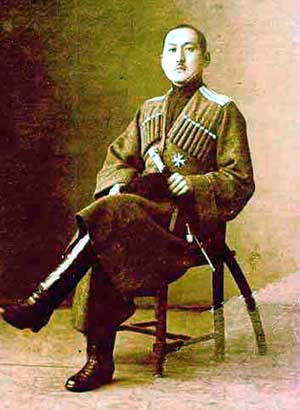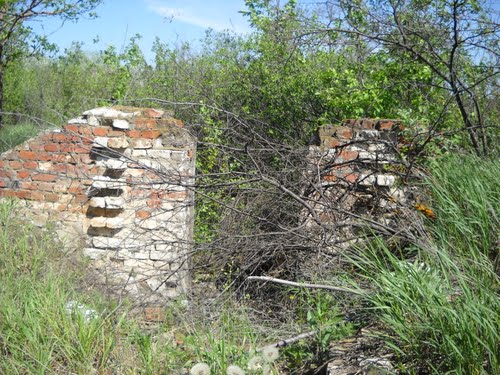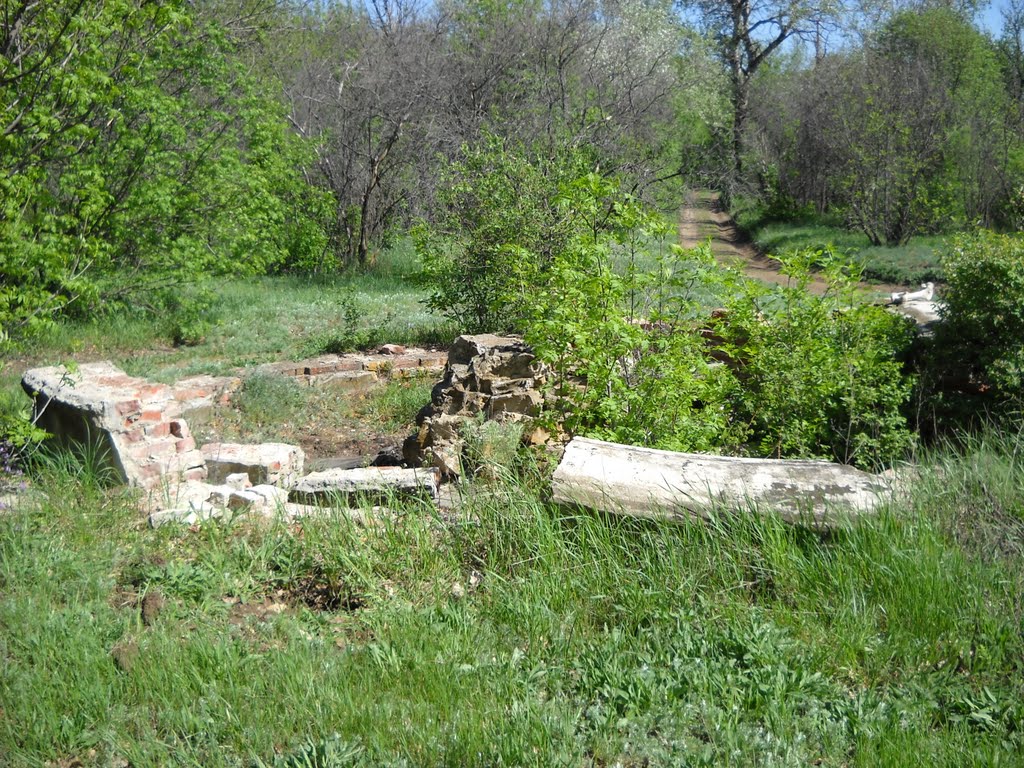The stone estate of the Kalmyk princes of Tundutov was built at the end of the 19th century. The princes of Tundutov are Genghis-Khan descendants. According to an ancient legend, their ancestors had some divine origin. The Tundutovs are considered to be the custodians of ancient traditions, senior mentors of the Kalmyk people. The Tundutovs built their estate in the traditions of Russian nobility – the prince’s house was situated on the hill, in front of the house there was a fountain and a magnificent park divided into avenues with statues of nymphs, at some distance there was the manager’s lodge. Unfortunately, today only the circle of the fountain is preserved, where you can see the sturdy brick walls and long poplar beams leading deep into the alley.
Old residents say that the Tundutovs had the family tomb. According to the legend when a very young daughter of one of the princes died, the father buried her in the deepest recess and filled it with a great amount of gold coins. All the guests who visited the estate had to commemorate the beautiful daughter and left there several gold coins.
The common grave of Russian soldiers buried during the battle of Stalingrad is located on the site of the former tomb now.
The history of the Tundutovs family is very interesting. In Moscow the Kalmyk princes were considered one of the best representatives of the Russian nobility. Repeatedly they were honored by the tsars. Chuchey Tundutov received a sword as a gift from Paul I and he was officially recognized as the governor of the Kalmyk people.
One of the Tundutovs descendants participated in Russia's war with France in 1812, he commanded the Kalmyk regiment and reached Paris.
Danzan Tundutov was the adjutant of the Grand Duke Nikolai Nikolayevich. During the Civil War, Danzan headed the Kalmyk Cossack regiment and was defeated by the Red Army near the village where the Tundutovs estate was located. At that time, the estate was ruined, rare books from the Tundutovs library and Buddhist icons were burned. Allegedly, the family tomb was also destroyed.
For 300 years the family of Kalmyk princes faithfully served the Motherland. Historians call this period in the history of Kalmyk-Russian relations the "golden period".


